Croatian Healthcare Workers: Christmas's Forgotten Heroes?
December 28, 2020 – Amidst the difficulties of a second lockdown, a socially distanced Christmas and yet more earthquakes, have we forgotten about Croatian healthcare workers? TCN decided to interview a doctor working on the front line of the fight against COVID
During the first lockdown, it was all about the balconies. Saxophonists, DJs, opera singers – we were entertained on social media by a string of balcony-based stunts that somehow showed resilience, community spirit, humour. Zagreb was no exception. A trend of clapping on balconies in appreciation of healthcare workers passed from country to country and was picked up in Zagreb. After the applause finished, people went back inside. Nothing much had changed. It was a nice enough gesture.
Since the start of summer, no such applause has been heard. Perhaps the release from lockdown gave the signal that the lives of Croatian healthcare workers had also become much easier? That certainly wasn't the case. Though the number of people infected with COVID has grown significantly over recent weeks, Croatian healthcare workers have been treating people sick with COVID since springtime.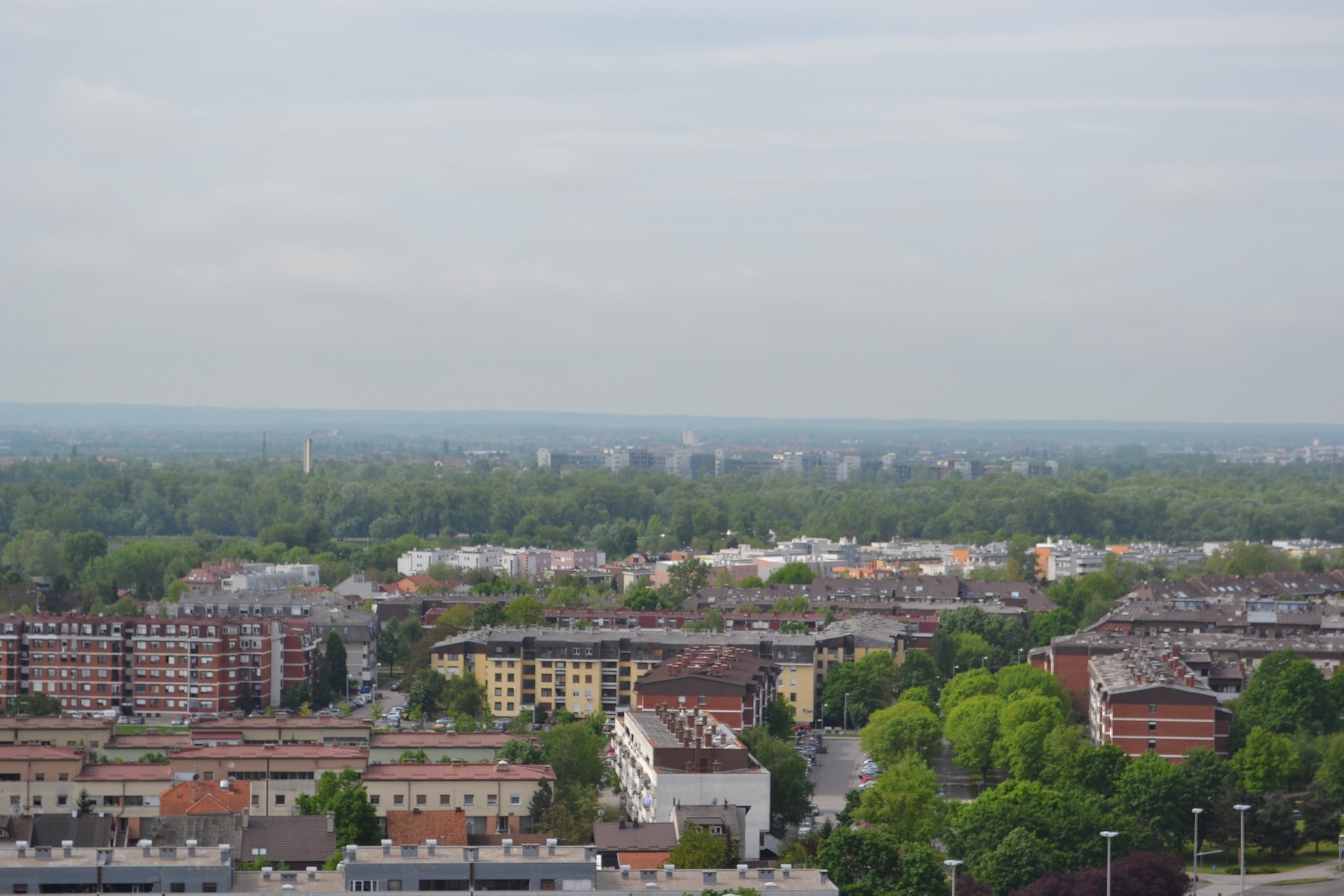
Croatian healthcare workers are currently busier with COVID patients than at any time before. And yet, there are no more trips out onto the balconies to show our appreciation for them. Perhaps it's now too cold outside? Perhaps some aren't aware how busy Croatian healthcare workers currently are with COVID patients? Are we perhaps guilty of taking Croatian healthcare workers for granted? Or, maybe we have simply put Croatian healthcare workers to the back of our minds as we struggle with our own challenges?
Throughout this year, TCN has been pleased to report many instances of generosity and innovation directed towards the fight against COVID. Certainly, not everyone in the country is guilty of forgetting about the Croatian healthcare workers who are on the front line fighting this disease. But, how much impact do these instances have on the general lives of Croatian healthcare workers? What is it like to no longer hear the nightly appreciation from our balconies? And, just what is life like as one of the many Croatian healthcare workers battling COVID in the year of the pandemic? TCN decided to interview one to find out.
The doctor we spoke with is a resident physician, working at a smaller community hospital in the continental part of Croatia. They agreed to speak with us on the condition that they do so anonymously.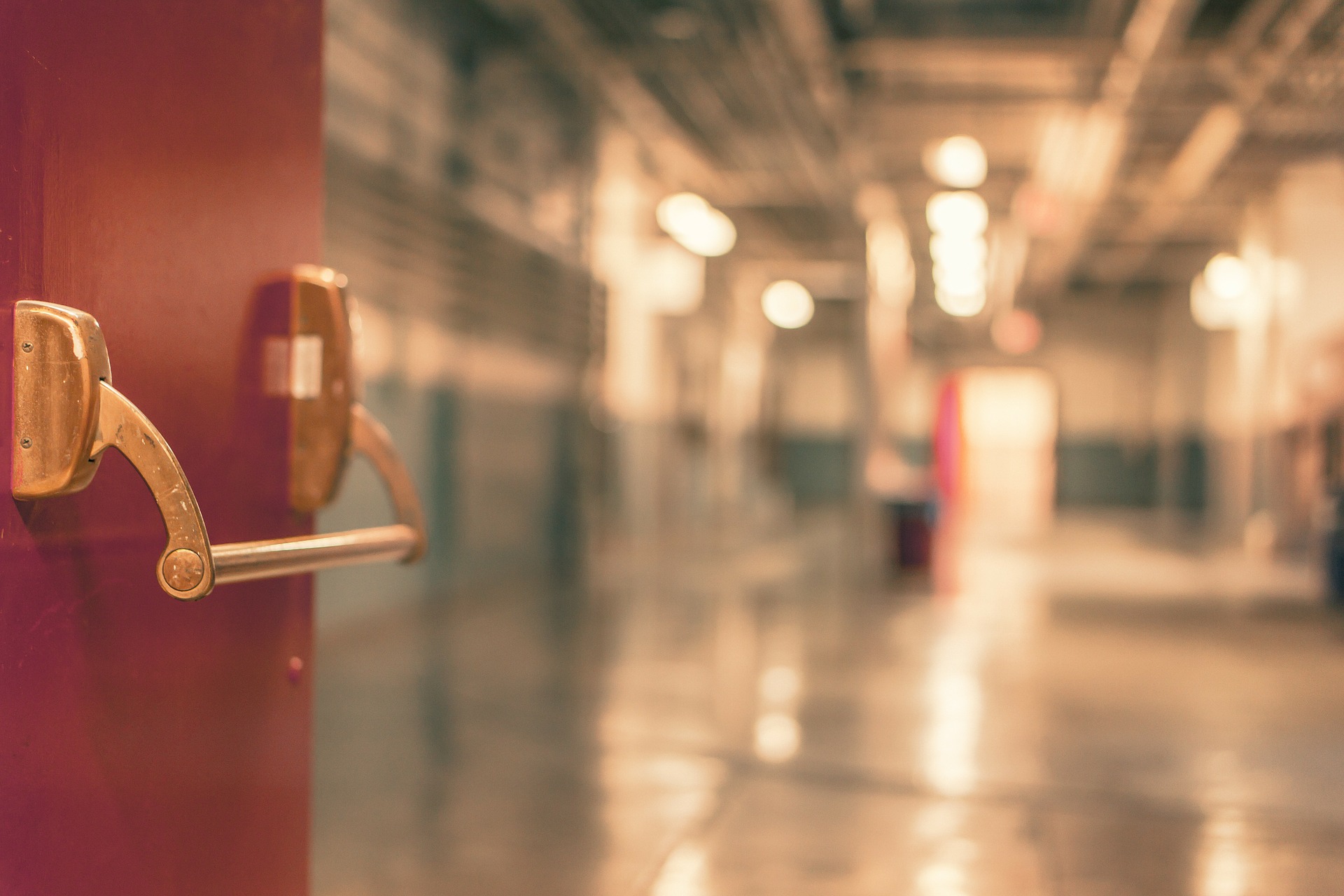
Looking back at the first lockdown, we didn't know so much about COVID back then. We didn't know exactly how it was spread, the different manifestations of the disease, what course the disease took, nor what the recovery could be like. I think the government did a really good job of responding to the threat as they saw it. We had a small spike in cases, but that is minuscule to what we have now.
I think people generally did what they were told because they thought it would be temporary and they could see the sense in starving the disease out.
At the hospital, we were at first caught a little off guard with the amount of PPE we had and some other resources that we needed. For ICU and ventilators, we were well equipped.
Some of the residents were given some paid leave. It was important to put human resources into tiers. Croatian healthcare workers were certainly more predisposed to catching the disease, simply because they were around it every day.
After such great early successes, I was surprised that everything was relaxed later on to allow the tourist season to take place how it did, and for events like the Vukovar commemoration. It felt like it was a calculated risk. The lockdown we are now in is perhaps too little, too late. The disease is out there now, wild. The numbers of infected people are significantly higher.
The difficulty with this disease is that people can be infected and have very few or no symptoms at all. They might not know they are spreading the virus. You might not know you're sitting next to someone who has it.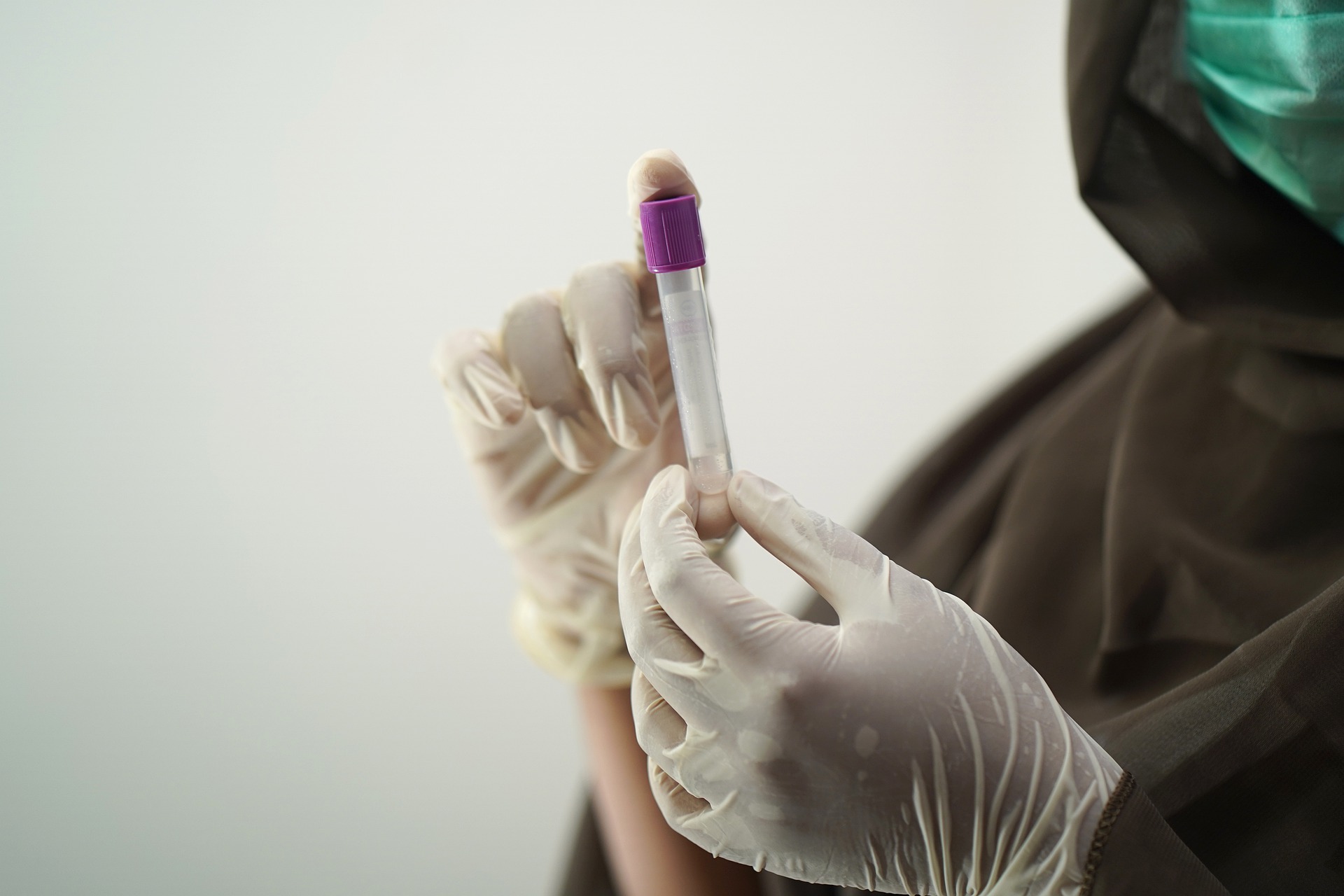
Even though we're not at the centre of care for a major population area or city, we saw cases of the disease almost immediately. Our community hospital services an area containing around 150, 000 people. The first cases in April came from nursing homes – elderly, vulnerable people, many with pre-existing conditions. We were well equipped to handle it. Now, we are stretched on a daily basis. We fill the beds with sick people as soon as we empty them.
We wear masks and PPE all day, all the time. All Croatian healthcare workers in hospitals currently do this. Every patient who comes in, regardless of their symptoms, we treat them as though they are carrying the disease.
A lot of residents like me, who are working towards getting their specialty, go to do some periods of work in larger hospitals in the bigger cities. Now, many of those residents have been called back to their community hospitals – we are short on human resources.
The hospital has had to restructure itself significantly. Lots of doctors have been asked to provide cover in the emergency department. Over half of that area is now fully dedicated to COVID.
What do COVID patients look like in regards to their symptoms? It depends on their age and risk group, but you see people who look like they have flu or bacterial pneumonia, you see people who are in acute respiratory distress. Sometimes they have neurological changes, some of them look like they have had a stroke. Some people who have been infected and have supposedly got over the worst of the symptoms, come back in after a month or two with blood clotting problems – blood clots in the legs, which have a tendency to travel up to the lungs and cause a pulmonary embolism. That's a pretty big medical emergency. Some who have pre-existing heart conditions come in with a heart attack triggered by them catching COVID – it's more complicated trying to revive someone when you know they have COVID. The presentation of the disease is so variable.
It's not only older people. I've seen young people be admitted with serious reactions to COVID - young, healthy people who have no pre-existing conditions. I've seen young people come in with mild symptoms, they are sent home with antibiotics and steroids. That is the standard treatment – antibiotics to prevent a bacterial super-infection and steroids to prevent an acute reaction by the body's immune system to COVID. - that's what can cause big problems later on, in the course of the illness. But, sometimes that's not enough. I had a young patient just last week - super healthy, worked out regularly, no pre-existing conditions – and his lungs just looked awful. He had to go to the ICU immediately (sadly, this patient later died). That's like no disease I've ever seen before. Really, COVID is a completely new kind of animal.
The new strain of COVID? There is evidence that it can be spread more easily, and that it can affect more younger people, but there is no evidence that it is any more severe. The vaccines will work against it.
We're short on ventilators now. Really, we need two free ventilators at any time, in case there is an emergency admission. We are not currently in the position where we always have two free ventilators – sometimes they are all in use. That's a worry. I worked one shift where the anaesthesiologist said “We just don't have any more space for them – we will just have to put them in the hallway”. I've never seen that before.
I've heard of Croatian healthcare workers, colleagues in other hospitals getting sick with COVID and the hospital asks them to prove they got sick at work. It's pretty clear that's the most likely place they would have got sick because they're working with COVID patients. They were forced to be off work, but only on a lower level of sick pay. If you get ill because of being at work, you get full pay. But, they couldn't prove it, so they didn't get that.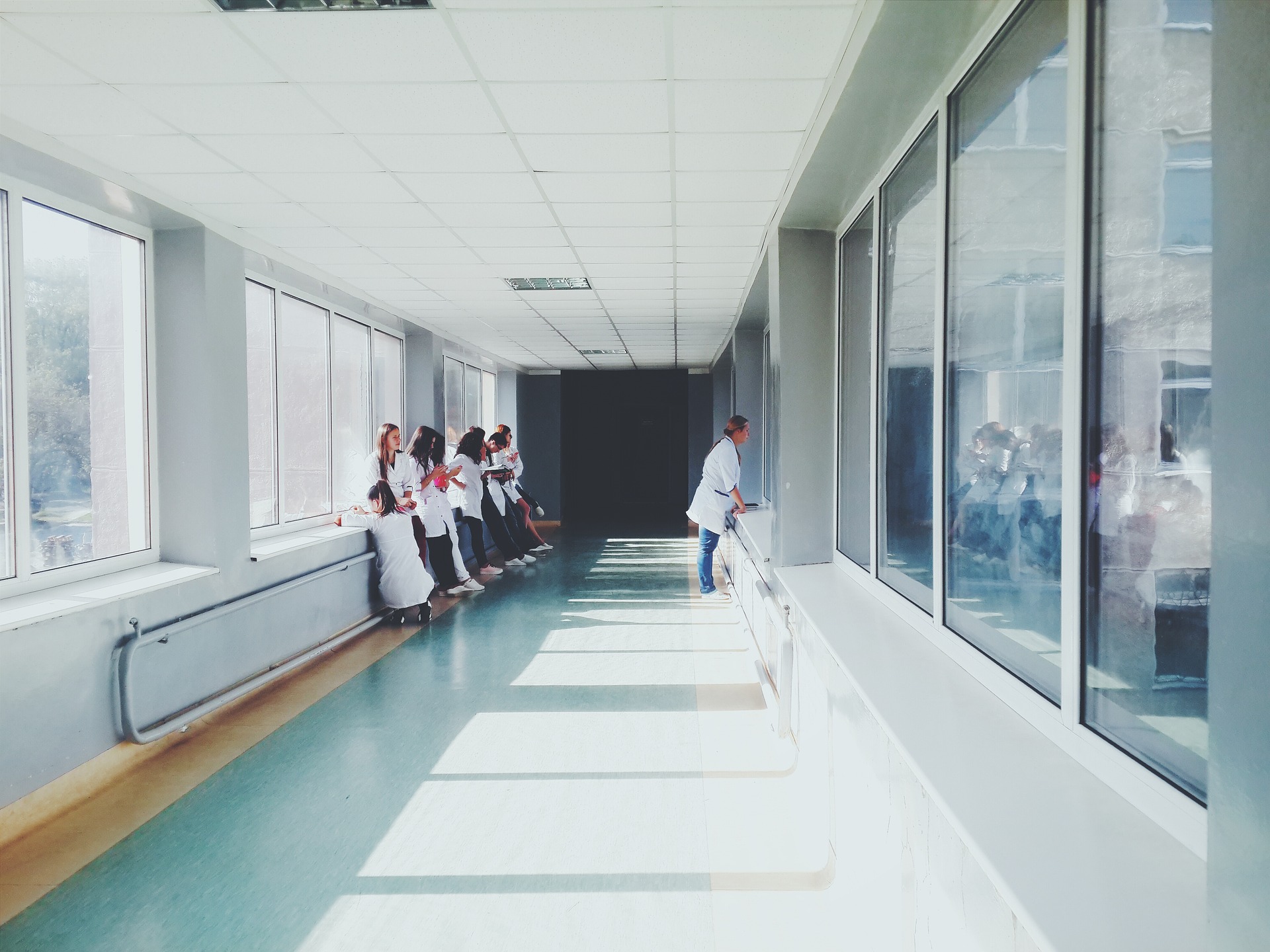
I've been lucky – I haven't caught COVID yet. Well, as far as I know. My pay hasn't gone down, it's gone up – but only because I'm working so many double shifts. I volunteer to provide cover when other members of staff get sick. The specialists – the consultant doctors – they have it worse than us resident doctors. They are more responsible, so they are expected to work more hours. Nobody is pressured or threatened into picking up extra shifts, it's just something that almost all of us just do.
I've read some nice stories about fundraising efforts and donations to Croatian healthcare workers and hospitals in different parts of the country. Everything is appreciated. But, I personally haven't seen any effect of that on our day to day lives at work. Not at our hospital. Maybe there were PPE donations or cash donations, but it hasn't impacted the daily lives of me and the Croatian healthcare workers who are my colleagues. I think I heard that a local garage was giving free cups of coffee if you show your medical ID. Every little is appreciated.
For me and the Croatian healthcare workers who are my colleagues, instead of any kind of personal discounts or donations to staff, we would much prefer if people just took this disease more seriously. Things look very different when you work in a hospital compared to someone outside who maybe doesn't know anyone who got sick.
I came off a particularly difficult double shift a couple of months ago – it was just non-stop COVID admissions, some severe cases. As I was walking home, I walked past a bar that's near to the hospital. They had signs on the walls telling people to keep their distance. But, the bar was absolutely packed – full of young people. It just felt so disappointing. I couldn't help but think of the older relatives they would come in contact with, some who might get really sick.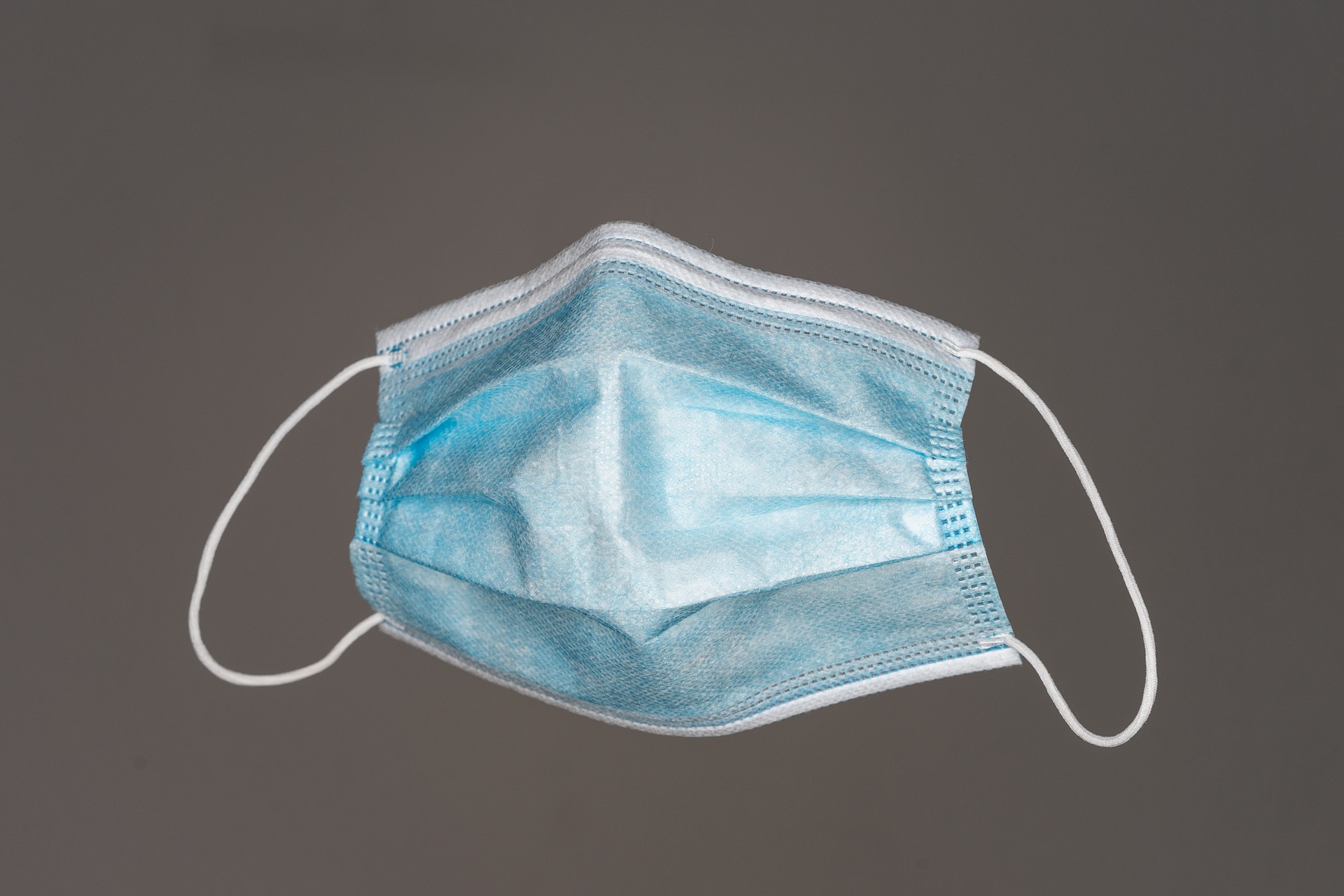
Instead of people clapping on balconies, I think Croatian healthcare workers would just prefer more general vigilance and personal responsibility – wear your mask, wash your hands regularly, no more parties in the basement. Clapping on balconies is a nice gesture, but ultimately it's an empty one.
How does it feel to know that there are some people out there, in every country, all around the world, who believe COVID is a hoax, or a plot, or not so serious, or that the vaccine is dangerous or something other than what it is?
Well, it's not always the content of the conspiracy theory that appeals to these people as much as it is their inability to accept facts – the truth – because they have little faith in the authorities that are telling them this. Here in Croatia, I think that distrust is quite high – a lot of people are disillusioned with the state and politics, because of corruption. Sometimes over 50% of the population choose not to vote. The dissemination of misinformation over social media doesn't help - if that's where people get their news from. If you look at that example from your own country, where strict measures about movement were put in place by your government, and immediately afterward, the Chief Advisor to the Prime Minister, was caught breaking them to travel across the country with his family to a second home in the countryside, going out on day trips. And he was defended by his colleagues after he was found out! When people see those kinds of things happening, the distrust between people and the authorities just grows.
All of the images in this article are used as illustrations only. None of the places or people depicted are in Croatia or Croatian, except for the first image, a panorama of Zagreb
Draft of New Measures in Croatia: Reintroduction of Passes, Max Gathering of 2 Households
December 17, 2020 – As Index.hr first reports, a draft of new measures in Croatia has been prepared, according to which all current measures should be extended, with several new restrictive measures. The new measures will be officially announced tomorrow, announced Prime Minister Andrej Plenković.
The Civil Protection Headquarters and the Government of the Republic of Croatia are currently working on the final details of the new, stricter measures that will be in force in Croatia after December 21, 2020. The draft of the new measures, which would be valid from Tuesday, December 22, includes the introduction of passes and a ban on gathering people from more than two households.
Reduction in the number of people at gatherings
New measures will prohibit leaving the place of permanent residence, which would mean the return of passes. Another restrictive measure, which, as Index reports, is a ban on gathering people from more than two households. This provision will certainly remain in the final decision on the measures, but it is not yet entirely sure in what form. Namely, there are proposals to limit gatherings to one household, but for now, it is a more likely option with two households.
The ban on cafes will remain in force, and restaurants will remain closed to guests. Cinemas and theaters will not close; neither will hairdressers and other salons. The headquarters believe that cinemas and theaters currently pose a minimal risk because they do not have many visits. Salons also remain open with the explanation that they do not pose a significant risk given the number of people in them at the same time, wearing masks and adhering to other measures.
Shops and shopping centers are regulated by another decision, which further limits the number of people inside. It is valid until January 10, and there will be no change.
An additional reduction in the number of people at gatherings is considered. However, in the ongoing conversations, the question was asked how much it makes sense because the numbers are still minimal. Gatherings take place in private spaces where the possibility of control is limited.
'The chances of introducing passes are about 70 percent'
The passes have already been included in the draft, and if there is no reversal today, this measure will also be in force after December 21, 2020. As Index learns from a reliable source, the movement restriction will apply between counties, and the City of Zagreb and Zagreb County will again be one unit, as was the case at the end of the lockdown in the first wave.
Due to the large number of passes issued in the first wave, more than a million of them, it is considered that inter-county movement should be allowed only to employees of services who need it and in rare exceptional cases.
It is also possible that a particular decision on passes, for this reason, will not be formalized immediately on Friday, but subsequently, during the weekend, when all the rules that will apply to passes would be defined.
"It will take us another six months to get all the vaccines and to vaccinate enough of the population. If we do not adhere to the measures, it is necessary to introduce formal restrictions, although there is no success in the measures without personal engagement. New measures are currently being prepared. The goal is to do everything to spend the holiday season in the most peaceful way possible. We are now fighting in terms of the clinical picture for a better January. It is necessary to reduce mobility," said Prime Minister Andrej Plenković at today's government session.
Cafes and restaurants closed until further notice
"It seems to me that the chances of introducing a ban on leaving the permanent residence, or the introduction of passes, are about 70 percent at the moment. It is tragic that some people probably think that someone's goal is to make Christmas and the holidays bitter. Restricting movement is something we are reluctant to think about, but we expect it to reduce contact, which is extremely important to us this holiday season. Otherwise, there will be a tough situation after the holidays, despite some positive developments in recent days. Something must be done to prevent the spread of the infection for the holidays. Unfortunately, the introduction of such measures is necessary because of the small number of people who do not want to abide by the appeal and the simple measures we have to endure until the end of the epidemic, which is getting closer," a well-informed interlocutor told Index.
The new measures should be valid until January 8, 2021, when passes will be abolished. Still, most other measures would be extended for another two weeks to see what consequences the holiday gatherings will have on the numbers of newly infected and consequently dead.
According to the Index's information, among the measures that would be extended beyond January 8 is the ban on working in cafes and serving guests in restaurants until further notice.
"The infection cannot spread if we do not socialize and meet others, and we do not adhere to that enough. We must give our contribution. If that were the case, we could relax the measures," Plenković said.
To read more about coronavirus in Croatia, follow TCN's dedicated page.
For the latest travel info, bookmark our main travel info article, which is updated daily.
Read the Croatian Travel Update in your language - now available in 24 languages.
Minister Tomislav Coric Praises Government Job Preservation Measures
December the 17th, 2020 - Minister Tomislav Coric has praised the Croatian Government's economic measure which was introduced in order to help employers preserve jobs during the pandemic, and he offered further comments on the duration of the now well known 4000 kuna per worker measure.
As Poslovni Dnevnik writes, the Minister of Labour, Josip Aladrovic, the Minister of Economy and Sustainable Development, Tomislav Coric, and the director of the Croatian Employment Service, Ante Loncar, came together to sign a contract for the “Stimulating education for related trades based on the PHASE II apprenticeship system'' project.
The aim of the aforementioned project is to improve and develop the model of education for occupations within the system of related trades, the solving of problems related to the lack of licensed natural and legal persons conducting apprenticeships, as well as the lack of motivation of economic entities to participate in the process of enrollment into occupations from the system of related trades.
"Aside from the associations which are representing the employers, we're going to hold a meeting with representatives of the main trade union centres in the context of the upcoming festive period and the eventual actions that we're going to be taking," announced Minister Tomislav Coric.
Measures to help the economy
Minister Tomislav Coric also commented on the duration of the Croatian Government's economic measures during the ongoing coronavirus crisis.
"This current phase we're in, despite the relatively positive numbers when it comes to new cases of infection in the past few days when comparing them to the week before, we believe that this measure will continue for some time. As long as phase A of the lockdown of part of the sector lasts, ie the reduction of economic activity in the country due to reduced revenues, the longer the measures to help the economy will last. Therefore, on the one hand, we've got the measure of 4,000 kuna per worker, on the other hand, we've got the measures to shorten working hours, and finally, we've got measures to cover part or all of the fixed costs of a company, depending on the level of their revenue decline.
That money will be provided for as long as we're witnessing such circumstances in regard to the functioning of the domestic economy. As circumstances change, new, possibly additional measures will be adopted, so that could mean that some of these measures will be abolished,'' he said, adding that everything depends on whether the epidemiological situation in the country improves or worsens.
Regarding the decline in the number of employees in Croatia, Minister Tomislav Coric pointed out that the country is at the same level as it was before the pandemic struck the country. "We don't have a significant increase in terms of unemployment. This first of all confirms the fact that Measure 3250, ie the ''4000 kuna measure'' hit the spot properly and made sure unemployment, despite the crisis that hit the whole of Europe, avoided hitting Croatia too significantly,'' Minister Tomislav Coric pointed out.
He also commented on the business and functioning of INA, which is an ongoing saga. "Unfortunately, over the last fifteen years, INA has been the subject of politics as a company, as has its very functioning, instead of being a subject of business,'' he stated briefly.
For the latest travel info, bookmark our main travel info article, which is updated daily.
Read the Croatian Travel Update in your language - now available in 24 languages
PM Says Additional Restrictions Possible Unless Situation Improves
ZAGREB, Dec 14, 2020 - Prime Minister Andrej Plenkovic said on Monday that it was evident that the current counter-COVID measures, which expire on 21 December, would be extended if the current high numbers of new infections were not reduced.
Additional restrictions are also on the table, Plenkovic said while chairing today's government session via video link from his home.
Commenting on the unfavourable epidemiological situation, Plenkovic underscored that in the last seven days, a total of 25,119 new cases of the infection had been registered, or 5.6% more than in the week before.
Figures about coronavirus-related deaths have also been on the rise.
Unless we manage to reduce the current high coronavirus numbers, the existing measures will be prolonged beyond 21 December, said the premier, who is in isolation after he was diagnosed with the coronavirus infection in late November.
The premier called on citizens to be aware of the demanding circumstances, noting that the measures adopted by the government and the COVID-19 crisis management team had to be complied with.
"It is clear that this year, Christmas will differ from Christmas festivities in the past. I appeal for avoidance of any bigger family gatherings, since the virus spreads most easily in such situations," he added.
New Framework of Anti-COVID Measures to be Specified This Week
ZAGREB, Dec 14, 2020 - Interior Minister Davor Bozinovic, who is at the helm of the Croatia's national coronavirus crisis management team, said on Monday that the team would hammer out a new framework of anti-COVID measures this week.
"Intensive talks are underway, consideration is given to everything," the minister told a news conference in Zagreb.
This week some concrete answers will be given to the questions what can be done to make sure that coronavirus numbers start declining, Bozinovic said announcing more precise measures, while answering the question if passes could be expected.
He said that he could understand that all would like to see the predictability of moves.
I must underscore that some countries have announced the easing of the restrictions in this period only to make them stricter. Some countries have announced tougher restrictions but eventually eased them, he said in his comment on predictability.
Stricter Measures in Varazdin County Lead to Stagnation in New Infection Numbers
ZAGREB, Dec 7, 2020 - Stricter anti-epidemic measures for Varazdin Country that were introduced on November 21 have resulted in the number of new infections stagnating in recent days, the head of the COVID-19 management team for that county, Robert Vugrin, said on Monday.
Vugrin recalled at a press conference that three weeks ago they had been registering 1,500 new infections per week, they had had 172 patients with severe cases of COVID in hospitals, and the percentage of positive coronavirus tests had been 37%.
It was obvious then, he said, that the epidemiological measures in place were not effective, and recommendations made to the national team were either not accepted or were made more lenient.
The 7-day incidence rate in Varazdin County was twice and half times higher than the national one, and the county team had to react and propose stricter measures which entered into force on November 21. The same day, all secondary school and higher education institutions in the county accepted the proposal to switch to online classes.
Vugrin added that they had had to wait at least two weeks for the first results.
During the first week, the number of new infections rose to 2,100. The number of hospitals in patients was also increasing, to 272, while the percentage of positive tests was 44%.
However, he said, two weeks after the stricter measures were introduced, the numbers have started to stagnate.
Vugrin said that the number of new infections in a week was under 2,000, and in the last three days there has not been an increase in the number of patients in hospitals, so the number of patients admitted to and released from hospitals is balanced.
"Over the past three days, we have come from 272 to 262, and today we have 258 patients in hospitals," Vugrin said.
Aladrovic: Closing Shopping Malls Not an Option
ZAGREB, Dec 7, 2020 - Labour Minister Josip Aladrovic said on Monday that closing shopping malls was not an option at the moment.
"At the moment, closing shopping malls is certainly not an option and I personally believe that it will not be an option. We can consider some possible additional anti-epidemic requirements for shopping malls in order to reduce the potential spread of the epidemic but closing shopping malls as such is not on the cards at the moment," Aladrovic said responding to reporters ahead of a government meeting when asked if there were any projections of the burden to the budget, if, for example, malls were closed.
With regard to estimated consumption, Aladrovic said that in the first few days of December consumption was almost identical to last year's. We do not expect any significant deviation in that most important segment in this pre-Christmas and Christmas period, he said.
The head of the national coronavirus response team, Interior Minister Davor Bozinovic, said on Monday that new rules for retail shops were expected in the coming days.
He said that talks were under way with retailers on imposing additional restrictions on the number of customers allowed in a shop at any given time. He added that he did not expect this number to be limited to one person per 10 square metres.
New Round of Croatian Economic Measures Offers Further Relief
December the 7th, 2020 - The latest anti-epidemic restrictions introduced by the National Civil Protection Headquarters have dealt another unwelcome blow to the economy, with certain sectors being hit harder than others. The government has, as such, made some alterations to this new round of Croatian economic measures.
As Poslovni Dnevnik/Marija Brnic writes, Croatian enterprises who use the measures to preserve jobs within their companies during this difficult economic period will be able to apply for new criteria as of this Friday. The new options are in line with last week's decision taken by the Croatian Government to expand the coverage available for those in catering and hospitality, gyms and more who have had to put the keys in the lock until the 21st of this month as a result of the National Civil Protection Headquarters' decision.
The Governing Board of the Croatian Employment Service (CES) has approved that this measure can be used by all those affected by the decision recently taken by the Headquarters, as can the publishers of books and occasional publications, and the novelty is that this new payment which covers up to four thousand kuna net in wage payments will provide an increase in allowances for directors and procurators in companies with less than ten employees.
The CES is leaving the possibility open for the assessment of which conditions are more favourable for employers who have already submitted their applications for support for the month of November. Employers whose application for November was rejected before this correction of the criteria also have the right to submit a new application or supplement their previous application in accordance with these new provisions.
The biggest novelty in this round of Croatian economic measures is the covering of part of or indeed all of the fixed costs of employers which have been hit by the latest decision made by the Headquarters. The ins and outs are still being determined by the Ministry of Finance, so details on what will be possible to be reimbursed by the state and in what percentage it will all be charged will be known in the days to come.
Last week, Finance Minister Zdravko Maric announced that the refund would cover the lease of business premises, electricity, water, gas and heating bills, fees for HRT and ZAMP and possibly even more than that.
As announced after the session of the Management Board, the CES will formally make these payments as it has done in the past, but the cost declarations will be submitted and approved by the Tax Administration of the Ministry of Finance. The competent ministry will publish all instructions to employers who are interested in the new round of Croatian economic measures on its website.
For the latest travel info, bookmark our main travel info article, which is updated daily.
Read the Croatian Travel Update in your language - now available in 24 languages
Entrepreneurs Want Compensatory Measures to Apply to all Affected Activities
ZAGREB, November 30, 2020 - The government has not found a solution for all businesses that have been strongly affected by the coronacrisis, the Voice of Entrepreneurs (UGP) association said on Monday after a meeting with government officials, adding that compensatory measures need to include all affected activities.
Government representatives met with employers and representatives of the hospitality sector today to present compensatory measures designed to help offset the consequences of the latest lockdown imposed due to the deteriorated epidemiological situation in the country.
UGP underlined that it had much higher expectations from the meeting.
"We welcome some measures that were presented by ministers like the new COVID loans by HAMAG-BICRO. One of the recommendations is to compensate fixed costs but only for those activities that have been shut. We believe that all activities with a large fall in turnover need to be compensated regardless of whether they are formally shut," UPG said in a press release.
Citing the event industry, temporary providers of transport services, travel agencies and other activities that depend on activities that have been shut down, UPG wondered if they would be left to cave in.
One of UPG's proposals is a temporary reduction of VAT for the affected activities. The association believes that VAT should urgently be reduced to 13% in order to boost consumption and that a move like that would facilitate business for all affected activities, including hospitality and other service industries. Almost all EU countries have done just that, the association notes.
UPG president Hrvoje Bujas thinks that short-term measures are insufficient and that there is no plan for long-term reforms.
"We are unhappy. We presented clear and substantiated proposals that are in Croatia's interest, please listen to us," Bujas added.
Catering Facilities and Gyms Close in Croatia Until December 21: New Measures in Full
November 26, 2020 – From Saturday, November 28, 2020, catering facilities and gyms close in Croatia due to the introduction of new epidemiological measures. Here's a look at all new measures which will be in force until December 21, 2020.
Today at the press conference at 2 p.m., Prime Minister Andrej Plenković presented new, strict measures to combat the coronavirus pandemic. These measures will be in force at least until December 21, and according to Hina, Plenković announced a change in the law, which will enable the punishment of persons who do not adhere to the prescribed measures.
The measures suggest that all public events and gatherings with more than 25 people are prohibited, and a maximum of 10 people are allowed to participate in private gatherings.
Masks are obligatory in the outdoors when it is not possible to keep a distance of at least 1.5 meters. All public events should last until 10 p.m.
As we reported earlier, the work of all catering facilities is suspended, except for hotels and camps, who can only serve their guests, but the restaurants and bars are allowed to prepare and deliver food during their working hours.
Sports competitions and trainings are suspended, except for the highest levels of competition, all without spectators and with the adherence to the epidemiological measures. The work of gyms, fitness centers, and sports and recreation centers are suspended as well.
Wedding ceremonies are suspended, and a maximum of 25 people are allowed to attend funerals where condolences must not be expressed through close contact.
Public transport must not exceed 40 percent occupancy, while drivers and passengers are required to have face masks. The control will be carried out by inspectors.
Stores, shops, and shopping malls remain open but should have displayed information about the largest possible number of customers who can be in the space at the same time, and they need to enhance hygiene measures (cleaning, disinfecting, ventilating).
Working hours of bakeries are limited to 10 p.m. Prohibition of alcohol sales stays from 10 p.m. to 6 a.m. Casinos and bookmakers, as well as fairs and other forms of economic and tourist events, are suspended.
All amateur cultural and artistic performances, programs, and events, including choirs, are suspended, as well as composite musical stage performances involving orchestras and choirs. There are no rehearsals of amateur choirs, which also applies to church choirs.
Anti-epidemic measures restricting 25 people and completion by 10 p.m. do not apply to professional art performances and programs that do not include the performance of complex music and stage works that include orchestras and choirs, cinema screenings, and exhibitions in museums, galleries, and other exhibition spaces.
There is also no food consumption in the cinema. Also, the work of children's playrooms and dance schools is suspended. Foreign language schools can only operate online, as well as driving schools. While driving, instructor and trainees should wear masks.
It is recommended that masses are online, via radio and TV programs, without coming to religious facilities. There may be a maximum of 25 believers in the church at mass.
People who have any symptoms are prohibited from coming to work. Working from home is recommended, as well as sliding working hours, working in shifts and groups, fewer meetings, and regular ventilation of working space.
Plenković emphasized the fact that they are against complete closure and curfew, but they are introducing these measures in order to protect our health and limit certain activities that they believe will help reduce the infection. And they will also take care of the economy.
"Our goal is to ensure the sustainability of the health system in which our doctors, nurses, and health professionals make superhuman efforts to cure the sick and save every life. In parallel, testing capacity will be strengthened because we need to isolate every infected person," said Plenković.
To read more news about coronavirus in Croatia, follow our dedicated page.


